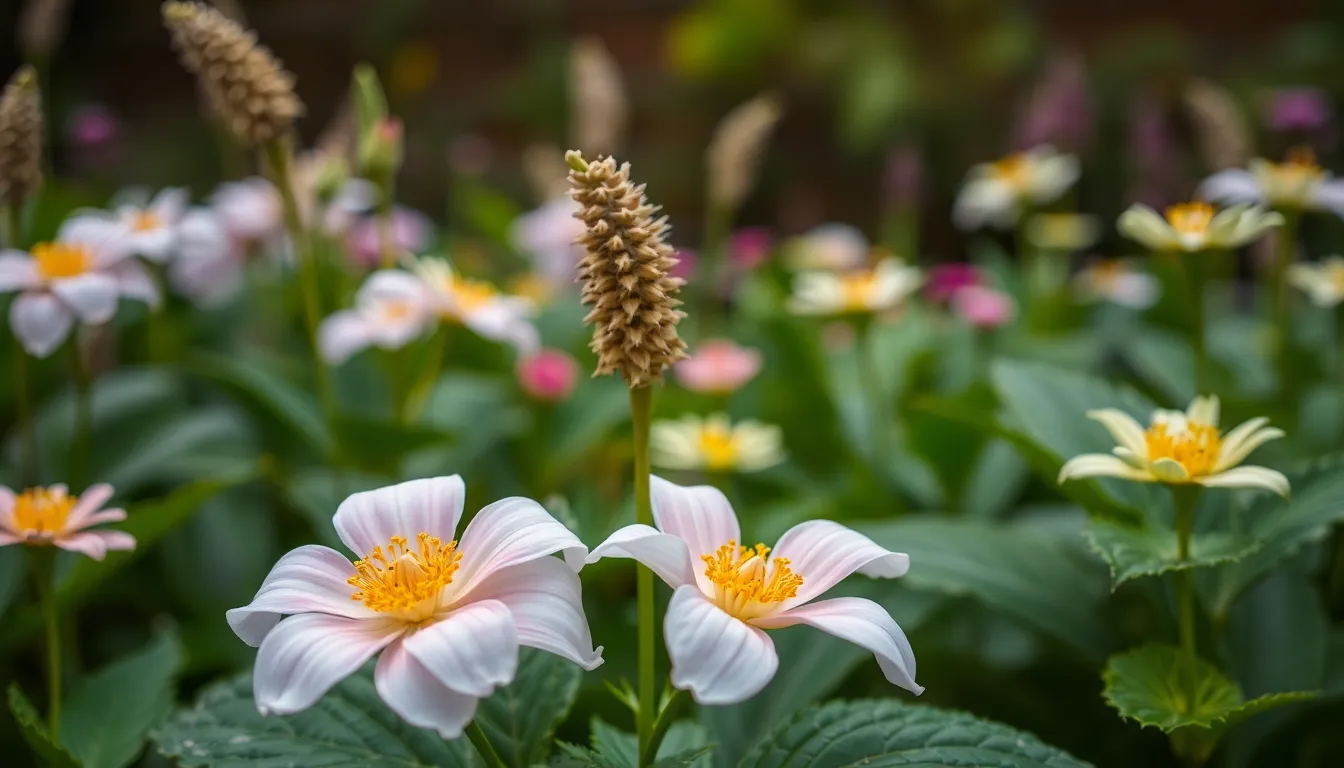Plant Myths That Will Change Your Gardening Forever
1. Introduction: The Power of Myths in Gardening
Gardening is a time-honored practice, steeped in tradition and often influenced by local lore. However, many of these gardening myths can hinder success and lead gardeners astray. As we delve into various plant myths, it becomes increasingly clear that debunking these misconceptions is crucial for fostering a thriving garden.
Understanding the science behind gardening will empower gardeners to make informed decisions, leading to healthier plants and more fruitful harvests. In this article, we will explore several common myths that, when debunked, can revolutionize your gardening approach.
2. Myth #1: You Can’t Grow Plants in Poor Soil
Many believe that poor soil spells doom for any plant. However, soil health is more nuanced than simply being ‘good’ or ‘bad.’ In fact, many plants have adapted to thrive in less-than-ideal conditions.
To improve poor soil, consider the following techniques:
- Amendments: Incorporate organic matter such as compost or well-rotted manure to enhance soil fertility.
- Soil Testing: Conduct a soil test to determine pH and nutrient levels, allowing for targeted amendments.
- Plant Selection: Choose plants that are known for their resilience in poor soil conditions.
Examples of plants that thrive in less-than-ideal conditions include:
- Black-eyed Susans (Rudbeckia)
- Daylilies (Hemerocallis)
- Yarrow (Achillea millefolium)
3. Myth #2: All Plants Need Full Sunlight
While many plants do prefer full sunlight, not all plants thrive under intense light conditions. Understanding the light requirements of different plants is essential for successful gardening.
Shade and partial sunlight can offer numerous benefits, such as:
- Reduced water loss through evaporation
- Less stress on plants during extreme heat
- Fewer pests that thrive in full sun
Recommended plants for low-light conditions include:
- Hostas
- Ferns
- Astilbes
4. Myth #3: Watering Plants Every Day is Essential
Another common misconception is that plants require daily watering. In reality, the frequency of watering should be dictated by soil moisture levels rather than a rigid schedule.
Consider these points:
- Check the top inch of soil; if it’s dry, it’s time to water.
- Deep watering encourages root growth, while shallow watering can lead to weak plants.
Signs of overwatering and underwatering can manifest in various ways:
- Overwatering: Yellowing leaves, root rot, and mold on soil surface.
- Underwatering: Wilting leaves, brown leaf edges, and stunted growth.
5. Myth #4: Mulch is Only for Aesthetic Purposes
While mulch can certainly enhance a garden’s appearance, its benefits extend far beyond decoration. Mulch plays a crucial role in maintaining a healthy garden ecosystem.
Benefits of mulch include:
- Conserving soil moisture by reducing evaporation.
- Suppressing weed growth by blocking sunlight.
- Regulating soil temperature, keeping it cooler in summer and warmer in winter.
Types of mulch and their specific uses include:
- Organic Mulch: Wood chips, straw, and leaves that decompose and enrich the soil.
- Inorganic Mulch: Gravel, stones, or landscape fabric that provide long-lasting ground cover.
6. Myth #5: Organic Pesticides Are Always Safe
There is a common belief that organic pesticides are inherently safe. However, this is not always the case. Organic does not mean free from harm; misuse can lead to negative consequences.
Consider the following:
- Organic pesticides can be harmful to beneficial insects if not used correctly.
- Over-reliance on any type of pesticide can lead to resistance in pests.
Integrated Pest Management (IPM) is a holistic approach that combines various strategies for managing pests safely and effectively. This includes:
- Monitoring pest populations
- Utilizing beneficial insects
- Employing cultural controls
7. Myth #6: You Should Prune Plants in Spring
Many gardeners believe that spring is the best time to prune all plants. In reality, the optimal pruning time varies by plant type and species.
Understanding the best time to prune can impact plant health significantly. For instance:
- Some flowering shrubs bloom on last year’s growth and should be pruned immediately after flowering.
- Deciduous trees often benefit from pruning in late winter or early spring before new growth starts.
Effective pruning techniques include:
- Using sharp, clean tools to make clean cuts.
- Removing dead or diseased wood first.
8. Myth #7: All Houseplants Are Easy to Care For
While many houseplants are marketed as low-maintenance, the reality is that some require more specialized care. The notion that all houseplants are easy can lead to frustration for novice gardeners.
Common houseplants that can be challenging to maintain include:
- Fiddle Leaf Fig (Ficus lyrata)
- Orchid (Orchidaceae)
- Calathea (Calathea spp.)
Choosing the right houseplants based on your skills and environment is crucial. Consider factors such as:
- Light availability
- Humidity levels
- Your ability to commit time to plant care
9. Myth #8: Companion Planting Always Works
Companion planting is often praised for its benefits, but it is not a foolproof strategy. The complexities of plant interactions can lead to unexpected outcomes.
Examples of beneficial companion plant pairings include:
- Tomatoes and basil
- Carrots and onions
However, some plant pairings can be detrimental, such as:
- Beans and onions
- Cabbage and strawberries
To successfully implement companion planting strategies, consider:
- Researching plant compatibilities
- Monitoring plant health closely
10. Conclusion: Embracing Science for Better Gardening Practices
In this exploration of common gardening myths, we’ve uncovered truths that can lead to greater success in your gardening endeavors. From understanding soil health to realizing the complexities of plant care, embracing scientific principles can enhance your gardening experience.
As you cultivate your garden, remember to research, experiment, and learn from your experiences. Knowledge is a powerful tool that can transform your gardening practices, leading to a thriving and beautiful garden.



